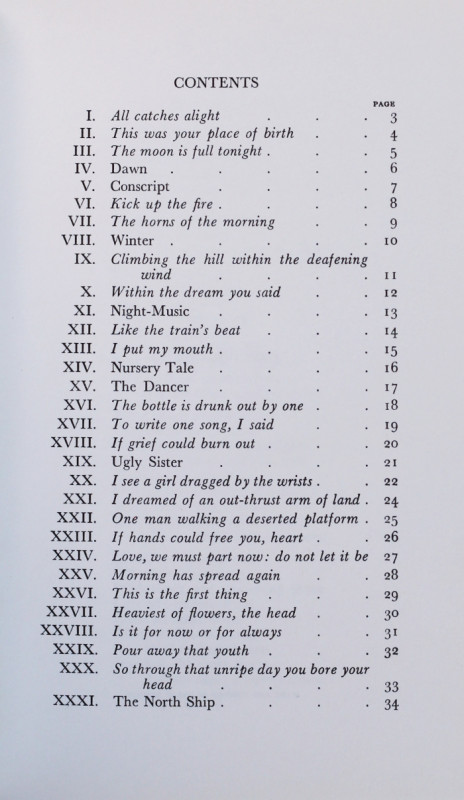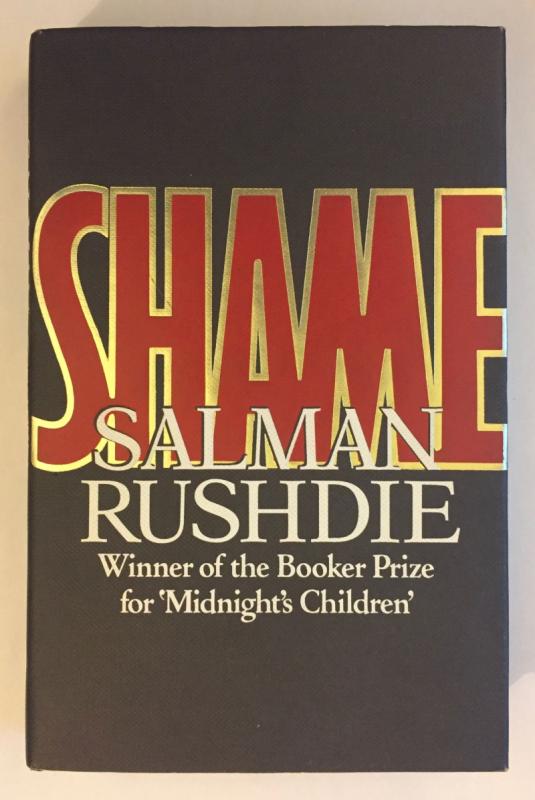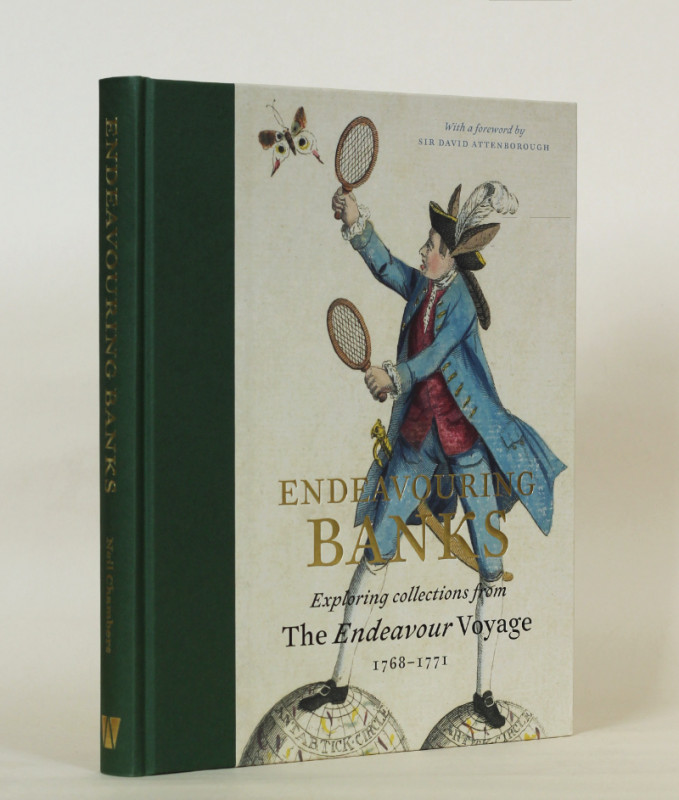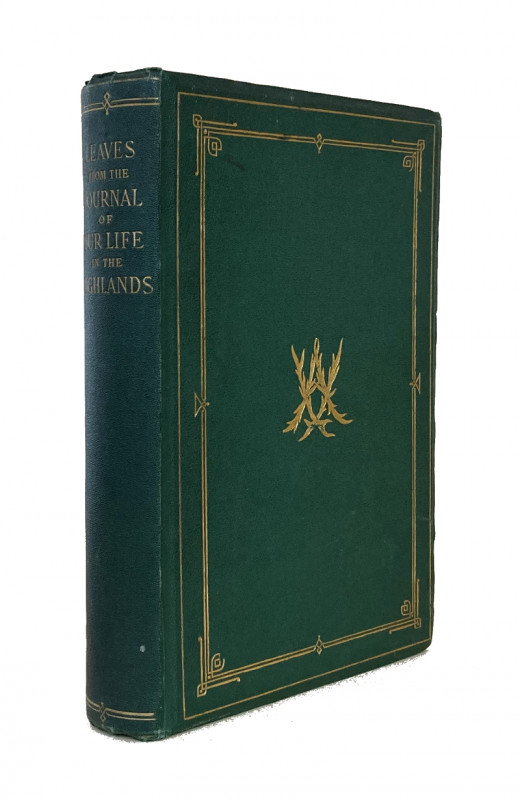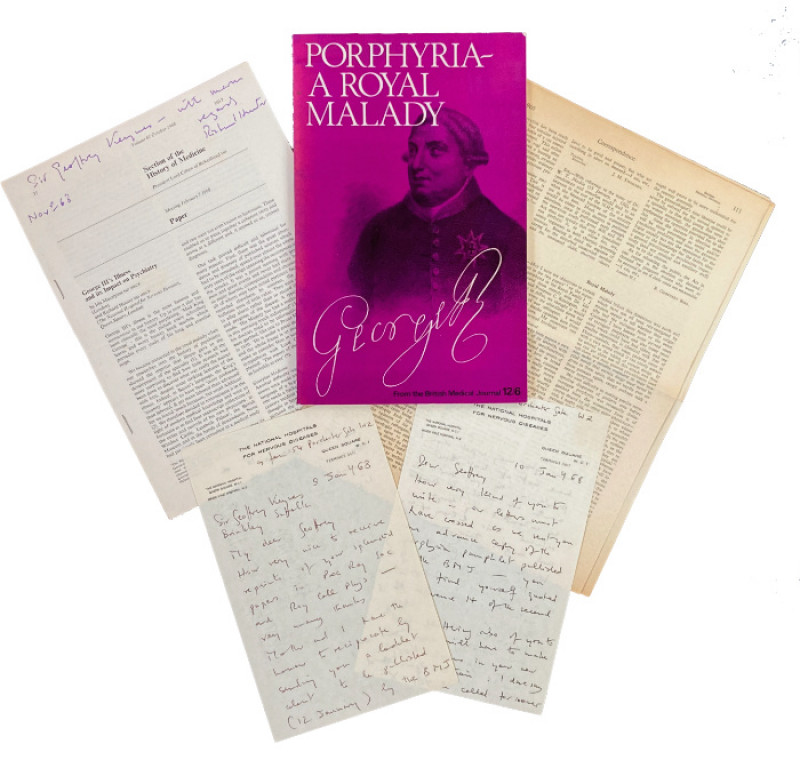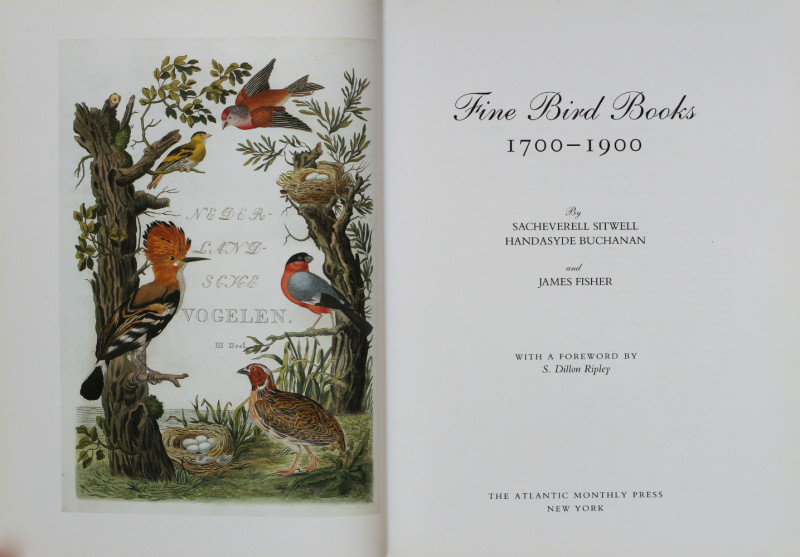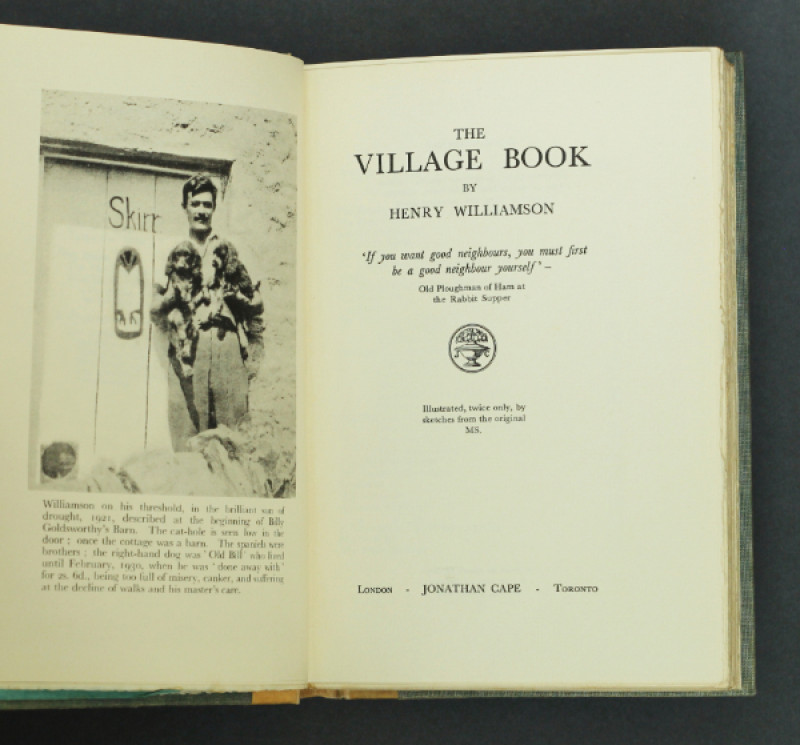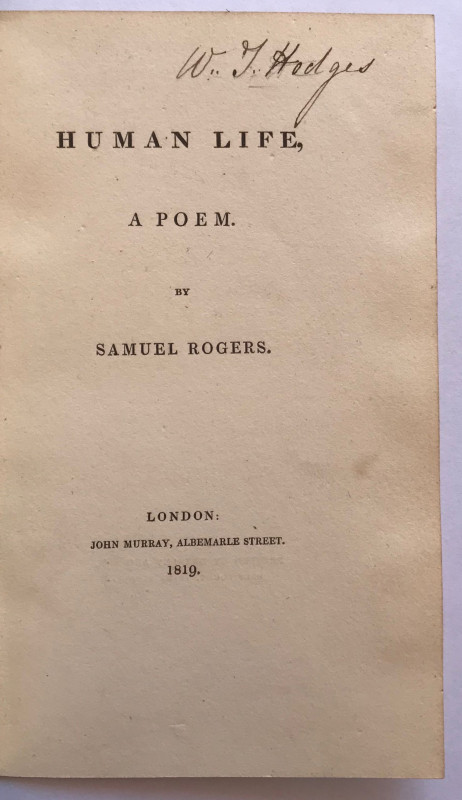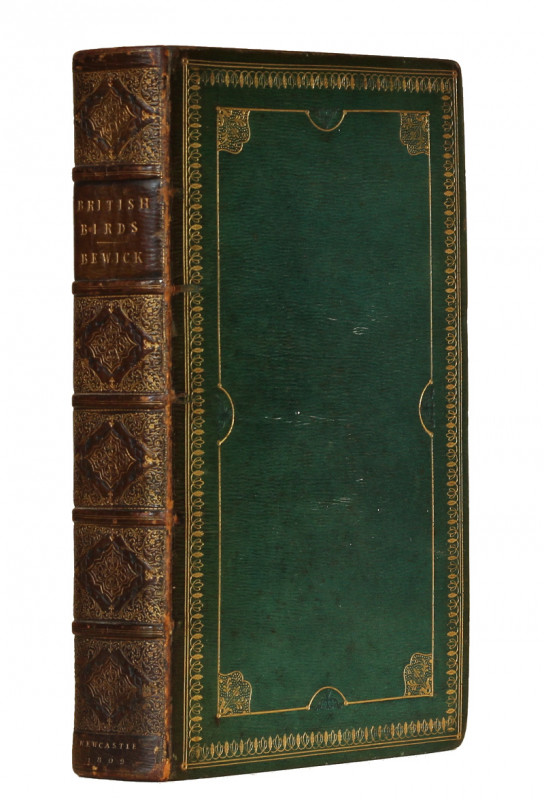The North Ship. Poems
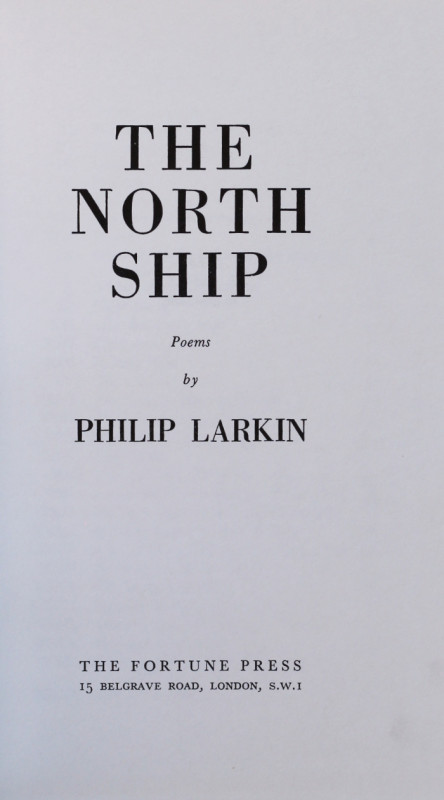


Book Description
THE SECOND, UNAUTHORISED EDITION OF LARKIN’S FIRST COLLECTION OF POEMS: ‘PERHAPS HIS WORK WILL GAIN WIDER APPEAL AS HIS GENIUS BECOMES MORE MATURE?’
Octavo (229 x 144mm), pp. [4 (half-title, verso blank, title, dedication)], 36. (Very light marginal mark on p. 4.) Original dark-red buckram, spine lettered in gilt, top and fore edges cut, lower edges trimmed. (Extremities lightly rubbed and bumped.) A very good, clean copy. Provenance: Antony Rex Divey (1930-2013, and by descent).
Octavo (229 x 144mm), pp. [4 (half-title, verso blank, title, dedication)], 36. (Very light marginal mark on p. 4.) Original dark-red buckram, spine lettered in gilt, top and fore edges cut, lower edges trimmed. (Extremities lightly rubbed and bumped.) A very good, clean copy. Provenance: Antony Rex Divey (1930-2013, and by descent).
Dealer Notes
Second, unauthorised edition, one of 500 copies. In 1944 the 22-year-old Philip Larkin, a recent graduate of St John’s College, Oxford, received a letter inviting him to contribute to Poetry from Oxford in Wartime, an anthology which was to be published by the Fortune Press. Larkin sent ten poems to the publisher, all of which were accepted, and received an invitation from R.A. Caton, the owner of the Fortune Press, to submit a larger group of poems with a view to possible publication as a collection. After some delays (in part due to his doubts about the quality of some of the pieces), Larkin sent Caton a group of poems in October 1944, and Caton replied that he would publish the collection in early 1945. Much to the poet’s disappointment, the promised publication date of February 1945 was repeatedly delayed until the end of July 1945, when The North Ship was published in an edition of about 500 copies, priced at 6s., which ‘were never all sold’ (Bloomfield, p. 2).
In his introduction to the Faber & Faber edition of The North Ship published in 1966, Larkin judged that, in retrospect, ‘it seems amazing that anyone should have offered to publish it without a cheque in advance and a certain amount of bullying’, while his biographer believed that the book ‘has usually been accepted in the spirit in which it was reissued by Faber twenty-one years later – as juvenilia, derivative, faintly ridiculous, a curiosity. Everyone agrees that it has recognizable Larkin features, but everyone also agrees that they are veiled and intermittent. Its only contemporary reviewer (in the Coventry Evening Telegraph on 26 October) warned Larkin what sort of reception to expect. “Mr Larkin,” the reviewer said, “has an inner vision that must be sought for with care. His recondite imagery is couched in phrases that make up in a kind of wistful hinted beauty what they lack in lucidity. Mr Larkin’s readers must at present be confined to a small circle. Perhaps his work will gain wider appeal as his genius becomes more mature?”’ (A. Motion, Philip Larkin: A Writer’s Life (London, 1994), p. 132).
After his novel Jill had been rejected by another publisher, Larkin sent it to Caton in 1945 and the Fortune Press published it in 1946. Relations between author and publisher deteriorated for a number of reasons, however, and Larkin’s second novel, A Girl in Winter (1947) was issued by Faber & Faber, who remained Larkin’s primary publisher until his death. In April 1965, nearly 20 years after the first edition had been published, ‘with no warning whatsoever, Caton and The Fortune Press had abruptly woken up to Larkin’s growing fame and published 500 copies of an unauthorized edition of The North Ship’ (op. cit., p. 358) – the present edition – which alarmed the author. While Larkin ‘had no particular regard for the book, [he] nevertheless didn’t want to lose the copyright. He consulted the Society of Authors and [Charles] Monteith [of Faber & Faber], who advised him that if Faber were to publish an edition this would sort things out’ (loc. cit.). Larkin was reluctant, telling Monteith that the poems ‘are such complete rubbish, for the most part, that I am just twice as unwilling to have two editions in print as I am to have one, and the only positive reasons for a second edition by you would be if this was necessary in order to secure the copyright, and to correct a few misprints’ (loc. cit.). Monteith persisted, however, and felt that the addition of a new introduction and a new poem (‘Waiting for breakfast, while she brushed her hair’) would make the projected volume more attractive to Larkin’s readers. The unauthorised Fortune Press edition ‘was withdrawn from sale when the author discovered its existence and in 1972 the firm of Charles Skilton The Fortune Press still had in stock 220 copies which could not be sold. The copies had no dust jackets as these had inadvertently been destroyed when the stock was transferred’ (Bloomfield).
This copy is from the library of the noted British engineer and designer Tony Divey, who worked for Lotus, DeLorean, Porsche, and other companies, before establishing his own business, Triking Sports Cars to manufacture and sell the Triking three-wheeled sports car which he had designed.
B.C. Bloomfield, Philip Larkin (2002), A1(b).
In his introduction to the Faber & Faber edition of The North Ship published in 1966, Larkin judged that, in retrospect, ‘it seems amazing that anyone should have offered to publish it without a cheque in advance and a certain amount of bullying’, while his biographer believed that the book ‘has usually been accepted in the spirit in which it was reissued by Faber twenty-one years later – as juvenilia, derivative, faintly ridiculous, a curiosity. Everyone agrees that it has recognizable Larkin features, but everyone also agrees that they are veiled and intermittent. Its only contemporary reviewer (in the Coventry Evening Telegraph on 26 October) warned Larkin what sort of reception to expect. “Mr Larkin,” the reviewer said, “has an inner vision that must be sought for with care. His recondite imagery is couched in phrases that make up in a kind of wistful hinted beauty what they lack in lucidity. Mr Larkin’s readers must at present be confined to a small circle. Perhaps his work will gain wider appeal as his genius becomes more mature?”’ (A. Motion, Philip Larkin: A Writer’s Life (London, 1994), p. 132).
After his novel Jill had been rejected by another publisher, Larkin sent it to Caton in 1945 and the Fortune Press published it in 1946. Relations between author and publisher deteriorated for a number of reasons, however, and Larkin’s second novel, A Girl in Winter (1947) was issued by Faber & Faber, who remained Larkin’s primary publisher until his death. In April 1965, nearly 20 years after the first edition had been published, ‘with no warning whatsoever, Caton and The Fortune Press had abruptly woken up to Larkin’s growing fame and published 500 copies of an unauthorized edition of The North Ship’ (op. cit., p. 358) – the present edition – which alarmed the author. While Larkin ‘had no particular regard for the book, [he] nevertheless didn’t want to lose the copyright. He consulted the Society of Authors and [Charles] Monteith [of Faber & Faber], who advised him that if Faber were to publish an edition this would sort things out’ (loc. cit.). Larkin was reluctant, telling Monteith that the poems ‘are such complete rubbish, for the most part, that I am just twice as unwilling to have two editions in print as I am to have one, and the only positive reasons for a second edition by you would be if this was necessary in order to secure the copyright, and to correct a few misprints’ (loc. cit.). Monteith persisted, however, and felt that the addition of a new introduction and a new poem (‘Waiting for breakfast, while she brushed her hair’) would make the projected volume more attractive to Larkin’s readers. The unauthorised Fortune Press edition ‘was withdrawn from sale when the author discovered its existence and in 1972 the firm of Charles Skilton The Fortune Press still had in stock 220 copies which could not be sold. The copies had no dust jackets as these had inadvertently been destroyed when the stock was transferred’ (Bloomfield).
This copy is from the library of the noted British engineer and designer Tony Divey, who worked for Lotus, DeLorean, Porsche, and other companies, before establishing his own business, Triking Sports Cars to manufacture and sell the Triking three-wheeled sports car which he had designed.
B.C. Bloomfield, Philip Larkin (2002), A1(b).
Author
LARKIN, Philip Arthur
Date
[1965]
Publisher
London: Knole Park Press Ltd for The Fortune Press
Friends of the PBFA
For £10 get free entry to our fairs, updates from the PBFA and more.
Please email info@pbfa.org for more information
